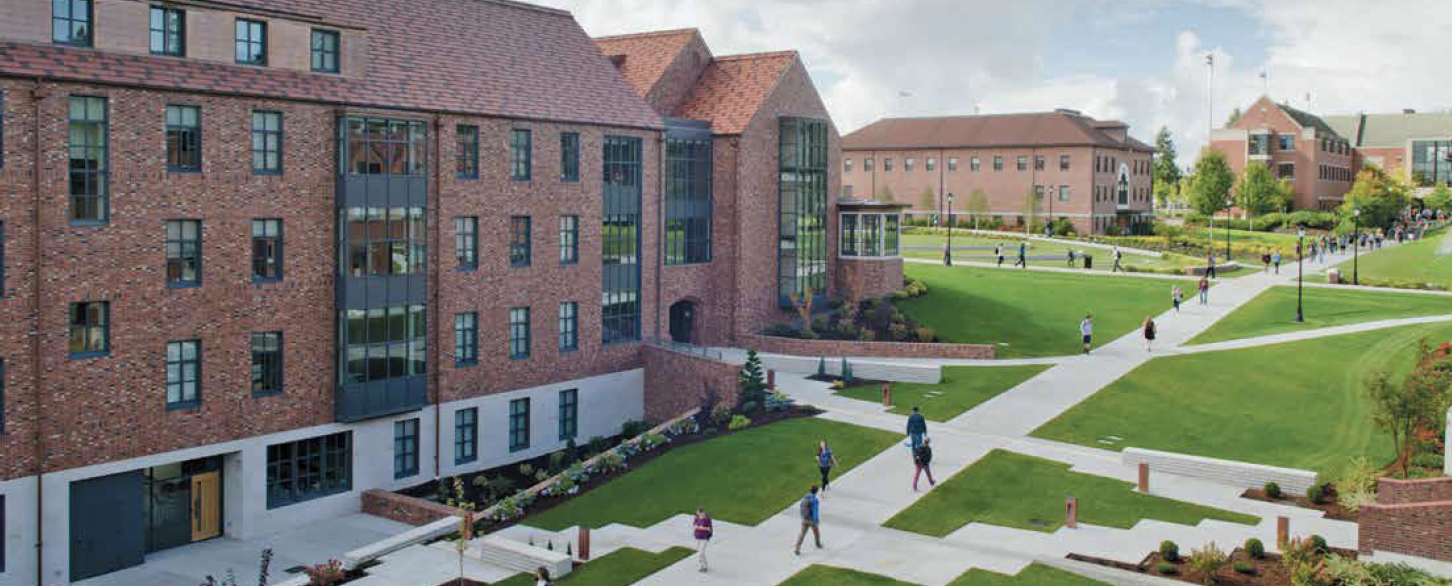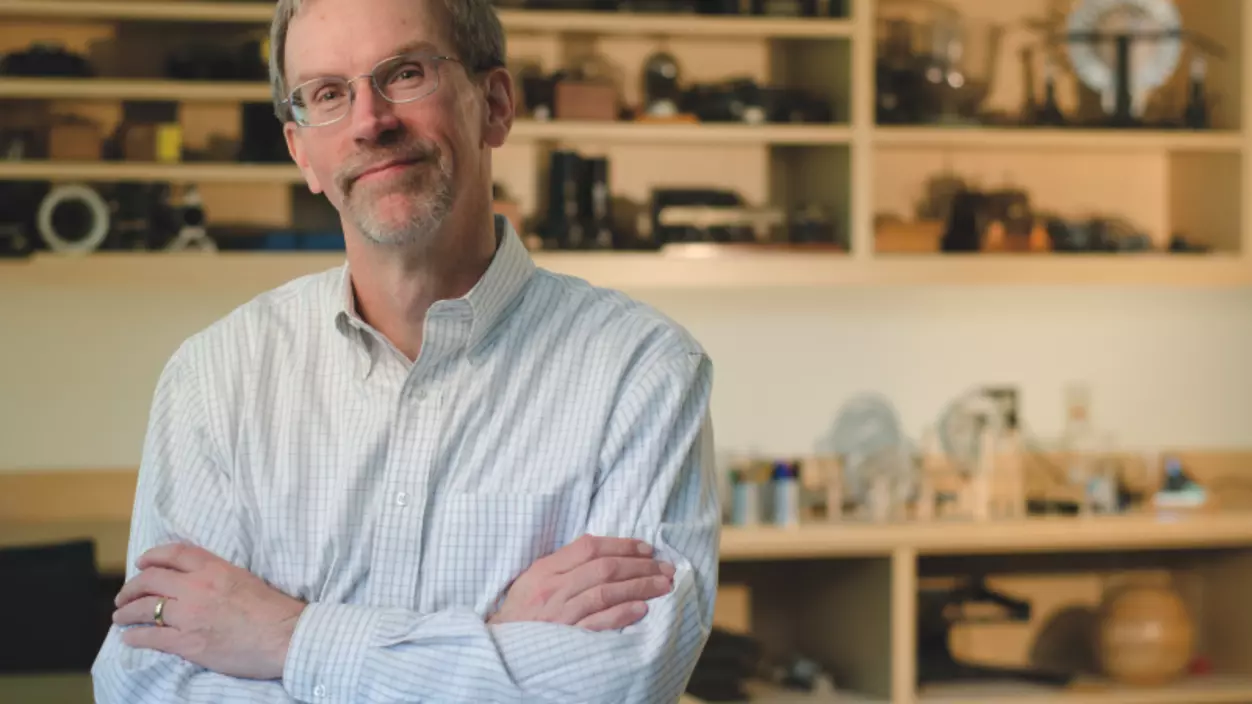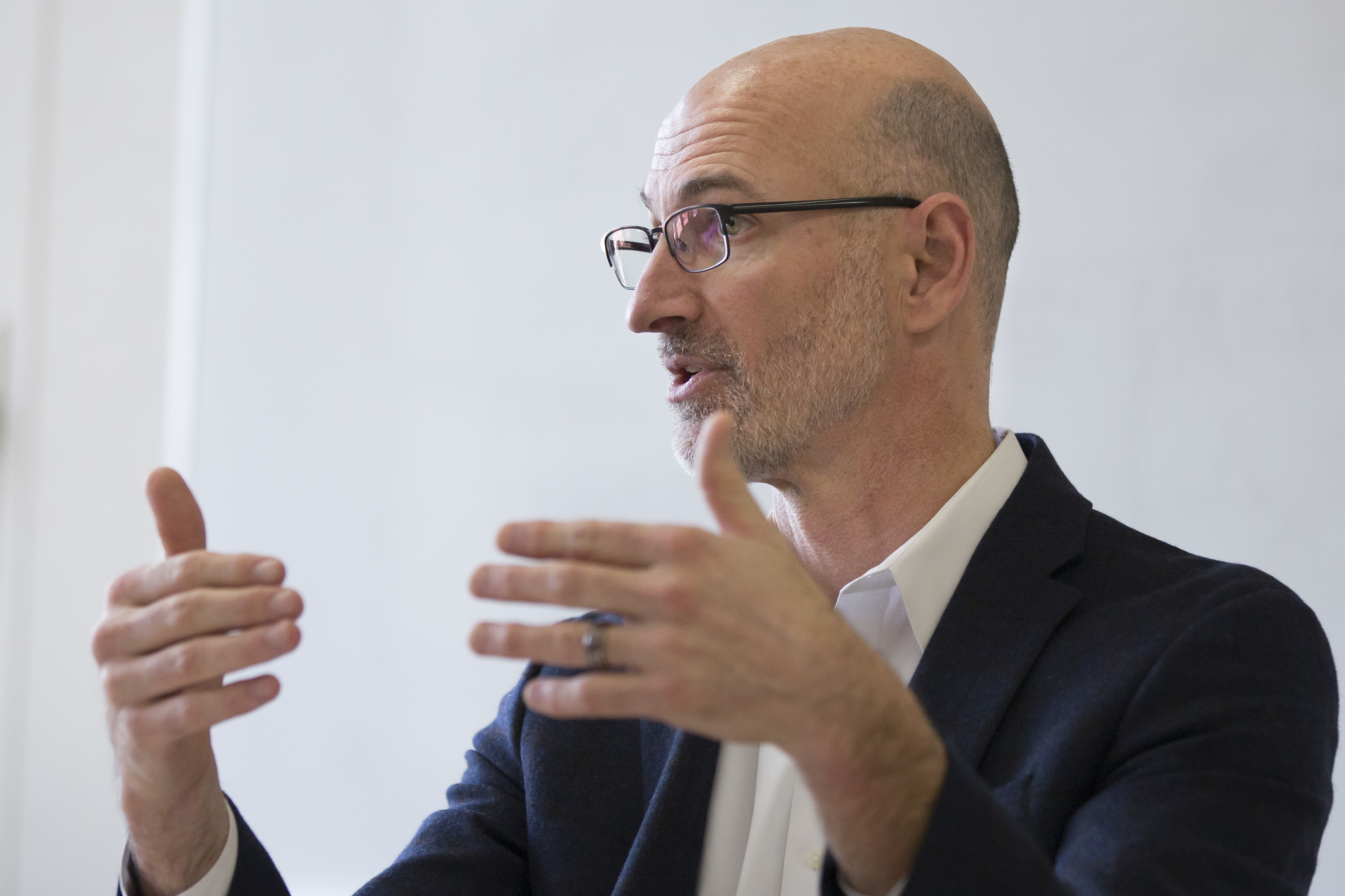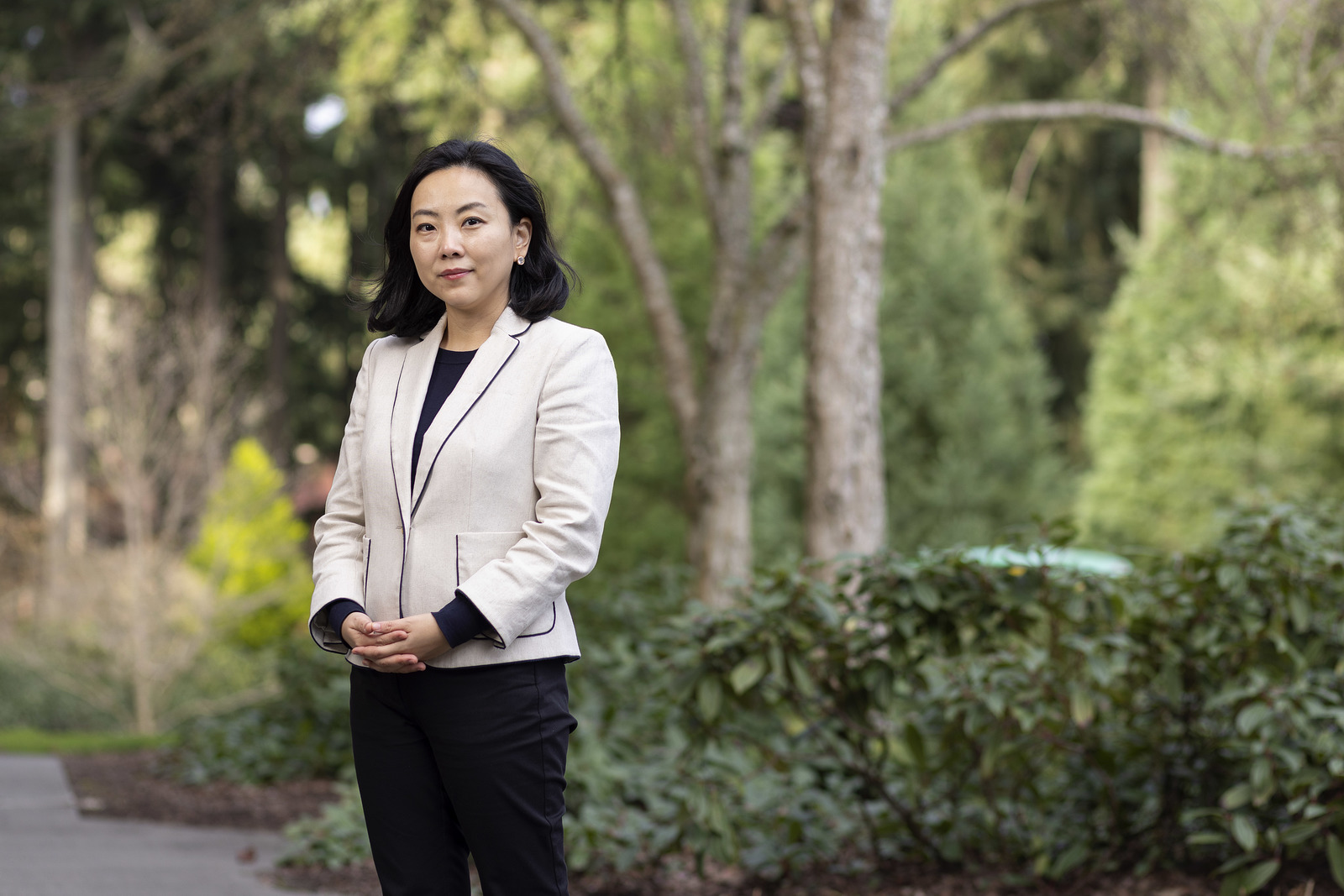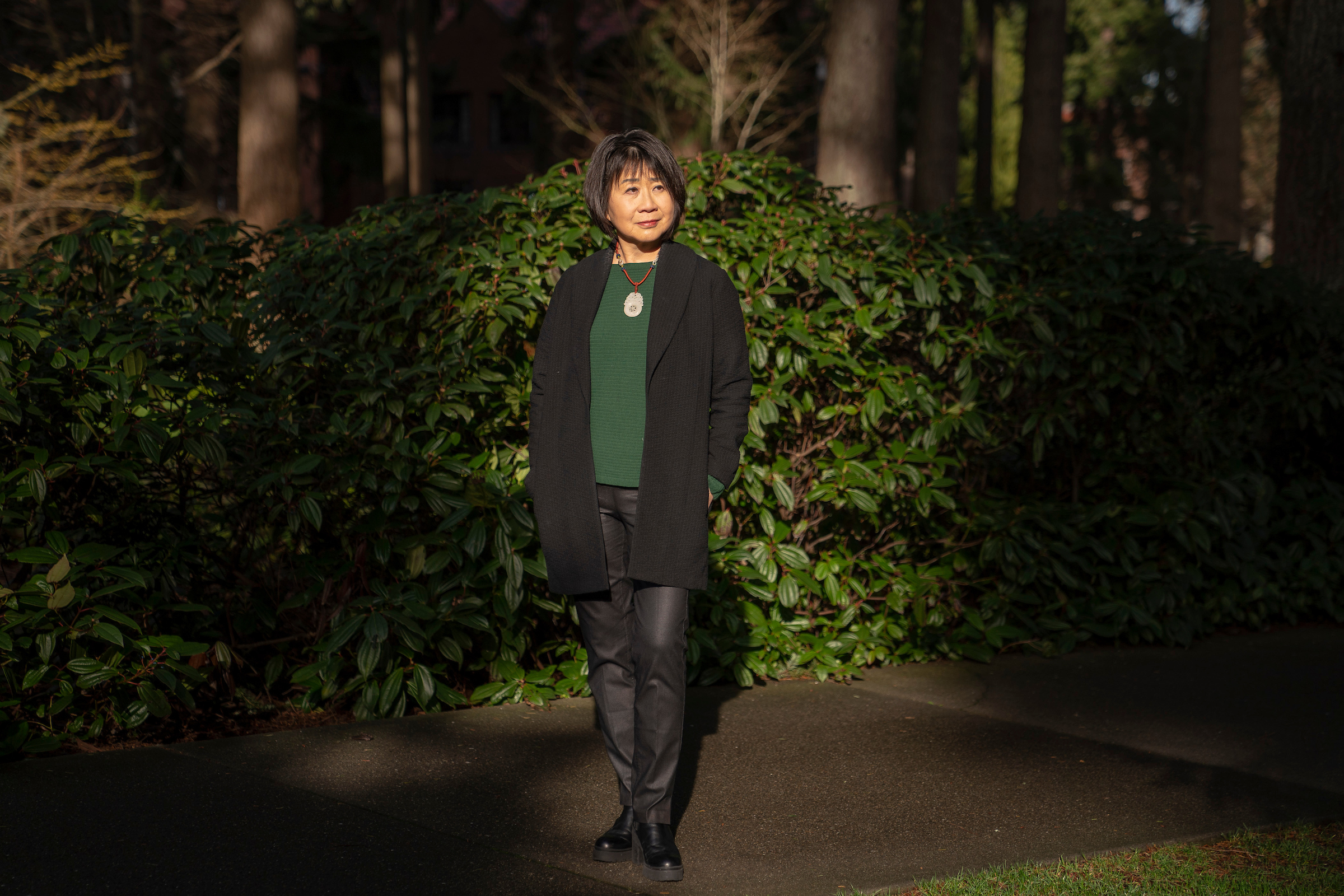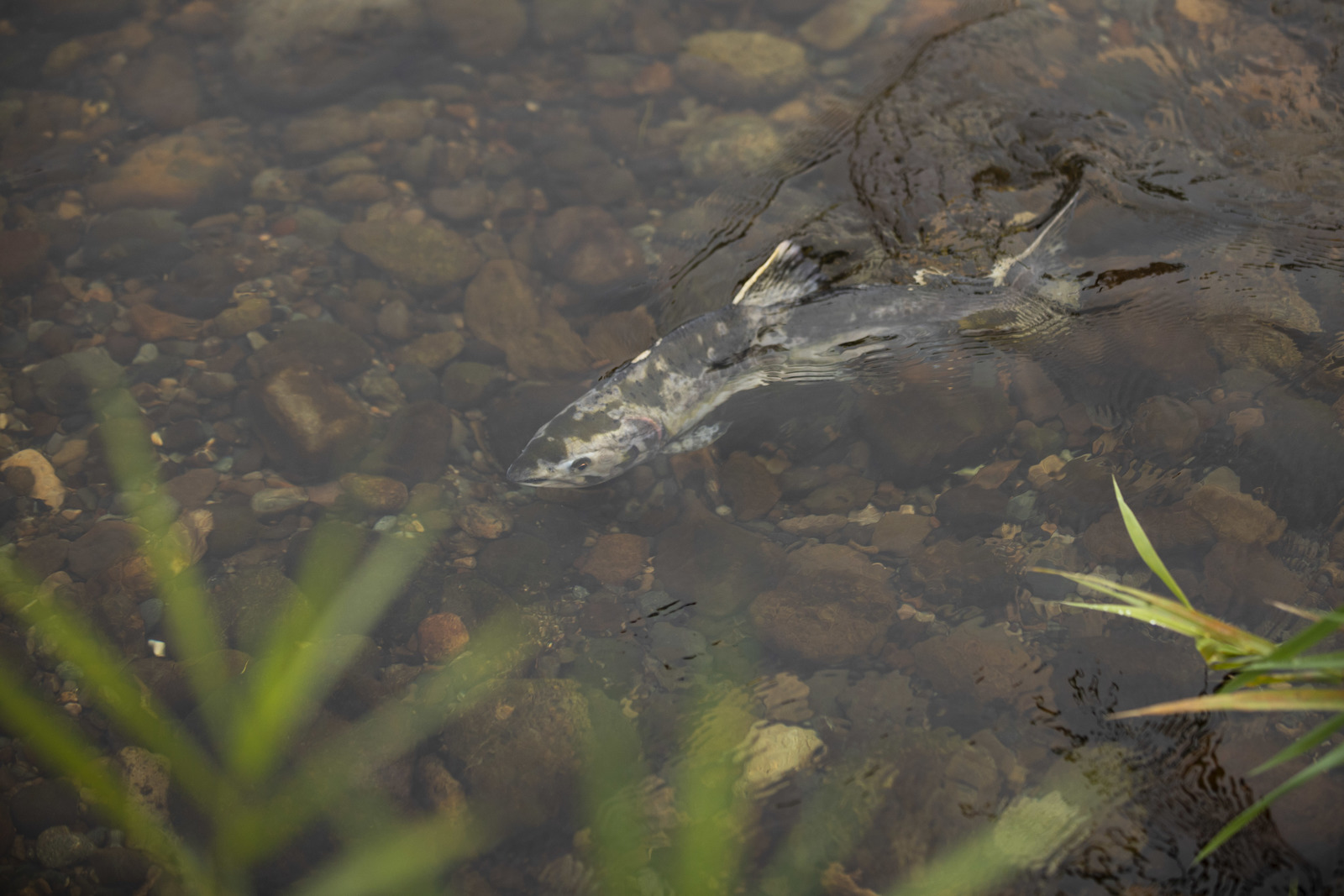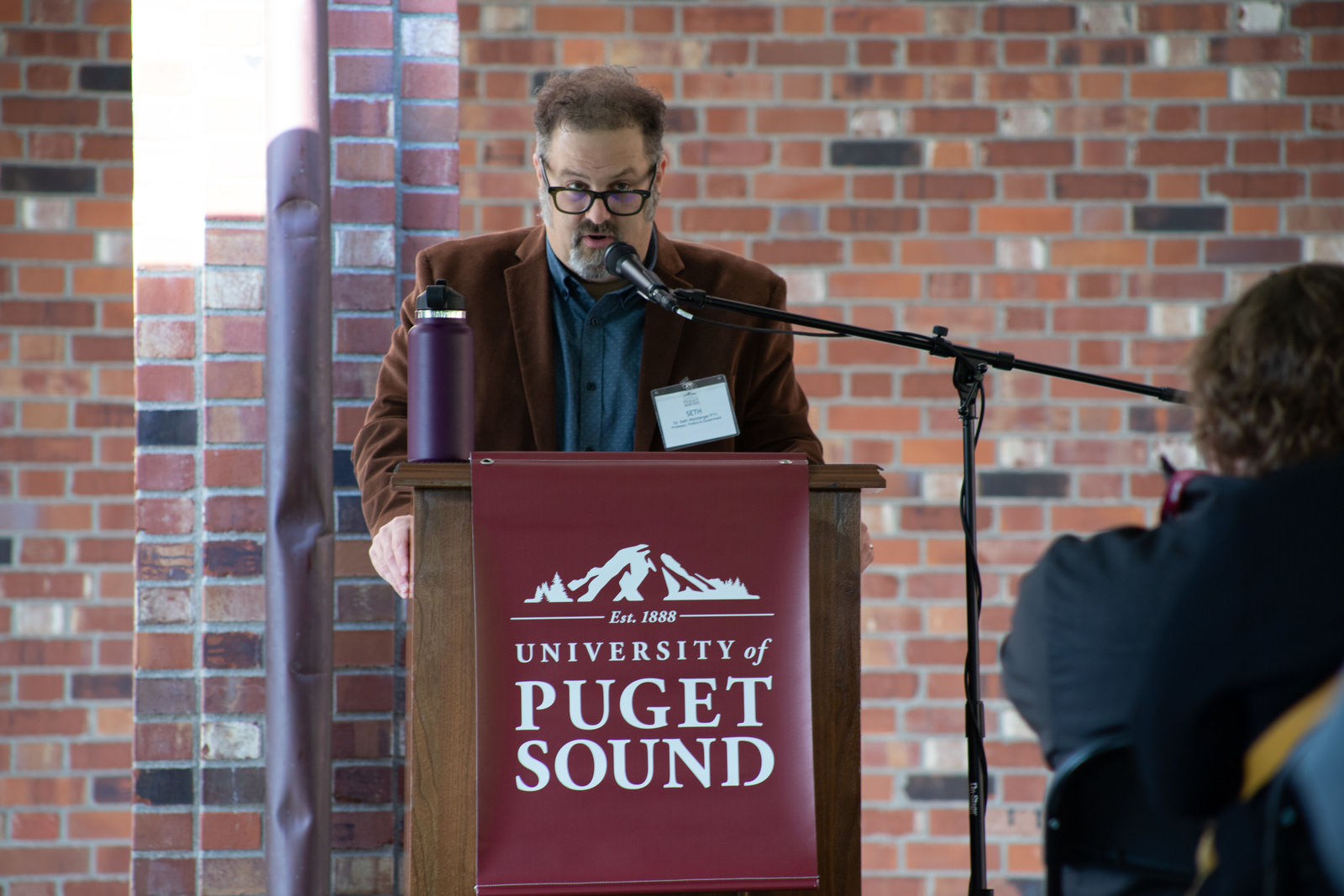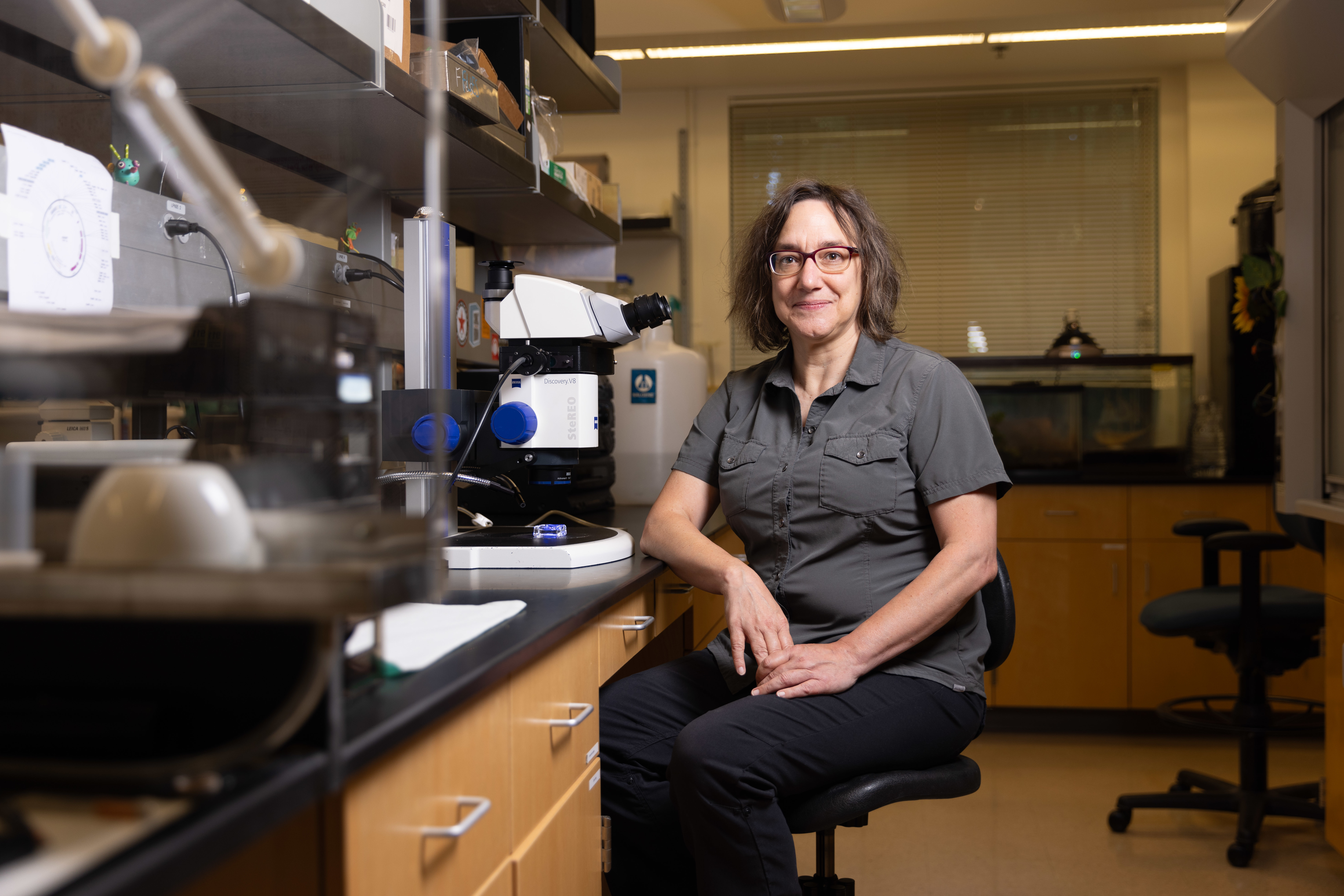Andy grew up in Middle America’s Peoria, Ill., where his interest in physics grew out of his fascination with the space program. The first physics course he took in high school was during the final year that man walked on the moon. Like millions of kids, Andy was watching on TV, but he was thinking about orbital mechanics. He received his Ph.D. in physics from the University of Virginia in 1982 and has been teaching at the University of Puget Sound since then.
Andy says that “teaching physics is hard,” and because this is a two-sided game, his empathy for the learner is unwavering. I spoke with him at his office in Thompson Hall over the summer.
Q: As a physicist, do you think you see life, or experience life, a little bit differently than people like me?
A: I can’t really say, because I don’t know how you see it. But one incident: I’m playing golf a couple of weeks ago, and a three- quarter moon was up in the sky, but it was daytime, and the guy I play with was a little puzzled as to why that might be. So I had to explain to him the moon moves around the earth once a month, et cetera, et cetera, and we see these different phases. He had never thought about that before. Things like that, I guess, how I would see the stars, the moon, I might think a little more that way, while other people say, “Oh, there’s the moon.”
Q: Why should ordinary people care about physics?
A: I think they naturally do care about it, because it’s the world around them. I think it’s built in. Look at kids—they’re curious about everything. In a lot of people that wears off, but maybe in the scientist, it doesn’t. Maybe there’s some Darwinist thing going on here, because people who were thoughtful and curious about what was going on around them were more successful than the ones who weren’t. If people think a little bit about the world around them, they’ll appreciate the world more. Natural processes are fascinating.
Q: It’s a caricature, but, maybe because of Einstein, the physicist is often seen as the ultimate absentminded professor. Any truth in that?
A: There is this stereotype of the professor as somebody who kind of has blinders on. I could say I’ve seen that in some science people. But now it’s the students. You walk around campus, and every student is like this [looking down]. They run into trees and run into each other. Run into me. I have to walk around them, when they’re doing that. It’s a big change from when we were growing up.
Q: You write about the physics of information, which caught my eye because information is not even physical. What’s this all about?
A: Information is physical. That’s the important thing. Why do you think it’s not physical?
Q: Because I might think, “Oh, the sky is blue today.” To me that’s a concept. But that observation doesn’t live anywhere.
A: It does. Once you observe it, you have a retina and an optic nerve, and then it registers in your brain that the sky is blue. Your brain is a physical entity. If information is in my computer here, it is stored in a memory, as a string of ones and zeros. Right? What makes that information is the fact that the one and the zero are physically different states. They’re physically distinguishable from one another. If you take your string of ones and zeros and make them all zero, you’ve changed the physical state. So information is really physical.
Q: You are also fascinated with Maxwell’s Demon. Who is this little devil?
A: It’s very, very intriguing to me. We have these laws of thermodynamics. The first law, essentially the conservation of energy, is pretty straightforward. The second is less so because it represents the tendency for things to run down, become more disordered and less useful in time. But there’s a little crack in the wall. Maxwell was the one who realized this: that maybe if you could control individual molecules well enough, you could make a system run the other way—become more ordered. And break the second law of thermodynamics. That’s what Maxwell’s Demon is. Now, I don’t think, we don’t think, it can work. But the reasons are very complex and subtle, and this is why, something like 140 years after Maxwell thought about it, we’re still thinking about it.
Q: So this second law, stating that things tend to entropy over time and become less organized, does this suggest the universe is fated to end up in one great big hot puddle?
A: Cold.
Q: Cold puddle?
A: Right. One part of the second law is that you can’t convert 100 percent of heat into work. Once the universe’s thermal energy has been completely dispersed, you can do nothing useful with it anymore. So the universe will just be this huge, cold puddle, or so it seems. You can look this up; it’s called heat death. But that’s in the far distant future. That won’t trouble any of us.
Q: Philosophically, though, isn’t that rather bleak?
A: My personality is to stay away from the bleak side. We know we’re not going to live forever. Jack Kerouac said, “Nothing is certain but the forlorn rags of growing old.” So there you go. Any way you look at it.
Q: Do you have any personal hopes of a physics breakthrough that could make a difference in our children’s lives?
A: Yes. One. Because of the importance nowadays of energy production and its relation to climate. Fusion energy is the one that always seems like it’s way off, and it may in fact always be way off. But if it ever does happen, it’s the perfect emission-free, relatively inexpensive, relatively easy way to produce mass quantities of energy. I don’t want the climate to go erratically out of control, but I want my children to have access to enough energy to do the things they want to do to have a good life.
